- Home
- Rick Mofina
Every Fear Page 3
Every Fear Read online
Page 3
“There he is, a legend called Jason.” White teeth flashed from the tanned, chiseled face of David Troy, WKKR’s veteran crime reporter.
“What’s shaking, Dave?”
“What I’m hearing is the mother and her baby were run over by a truck that fled the scene. Mom’s not going to make it.”
“Yeah, I got that.”
“We’re waiting for a detective to talk to us. They’re in the store.”
“You got a name on the mother?”
“Not yet.”
Jason took comfort in the hot lead he had in his notebook.
“What about witnesses?”
“Nobody so far.”
“You’re sure about that?”
“I’m sure you’re not going to beat me, Skippy. By the time your rag reports this, it’s yesterday’s news.” Troy watched the dish on WKKR’s satellite news van position for transmission. “We’re going live in minutes. Look at the images. Picture’s worth a thousand damn words. Impact news.” Troy pulled out a compact and began applying makeup for his stand-up.
Cameras were trained on the crime-scene people who were suiting up. Jason focused on the aftermath a few yards away, on the other side of the tape. The overturned baby stroller, the pool of blood near the curb, skid marks on the pavement. Was that a windshield wiper? He tried imagining how it had all happened. On the far side of the tape, he saw more TV and still news cameras, including Nate Hodge, a photog with the Mirror, who nodded.
As Jason studied the little he had, he got an idea. He slipped from the press pack and walked across the street to the vestibule of Arnie’s Hardware. Out of earshot, he called the paper.
“Mirror library, Kelly Swan.”
“Hey Kelly, Jason Wade. I’m at a hit-and-run in Ballard, which could turn out to be a homicide. I need your help.”
“Sure, Jason.”
Jason dictated the spellings for Maria Jane and Lee William Colson.
“Run the names through our archives see what comes up.”
“Stay on the line.” Kelly’s keyboard clicked. “Nothing on Lee William Colson—wait, I got something on a Dylan Colson but he’s, like, a baby.”
“A baby? Call it up.”
While Kelly clicked at her keyboard, he glanced inside the hardware store. His concentration switched tracks when he thought he could recognize a detective talking to an older man inside. What’s that about? He made a mental note to follow it up later.
“Here we go,” Kelly said. “It’s not in the daily. It’s in our community weekly. Zone Four. Oh, there’s a citation for Maria Colson and Dylan Colson, together in one entry.”
“What do you have?”
“No story. It’s a cut line for a picture taken a few weeks ago at a Ballard community fund-raiser bake sale. A fluffy picture of Maria Colson and her son Dylan looking at baby toys at a rummage sale. What a little sweetheart.”
“Can you send it to me?”
“Okay, you’ll have it in a few minutes.”
After hanging up, Jason looked at the Colsons’ address. It wasn’t far—three, maybe four blocks. He had a hunch and decided to gamble on it by leaving the scene. He called the Mirror’s photographer.
“Hodge.”
“Nate, it’s Jason. I’ve got to step away to check something out. Call me if the police make a statement.”
“Sure, but listen.” Hodge dropped his voice. “A cop friend of mine says it looks like they took the kid.”
“What?”
“Whoever ran down the mom kidnapped her baby.”
Kidnapped?
His pulse quickened. Man, this was more than a possible fatal hit-and-run, he thought, letting a few seconds of silence pass. “This could be a huge story. All right, call me if something pops.”
A minute later, he received the picture on his phone. Maria Colson and her son, Dylan, smiled at him from the palm of his hand. Mother and child. Looking at them, he tried to get a handle on what had happened. He hadn’t nailed anything yet. Was he even chasing the right angle? The right family?
As he walked around the corner, he got his answer. An SPD patrol car was parked in front of the Colsons’ two-story house. Bingo. And no other press in sight. Sweet. He was a few doors away when he spotted a woman leaving the Colsons’ driveway and coming his way.
“Excuse me.” He stopped her and reached into his jacket for his ID and a business card. “Jason Wade, with the Mirror. Could I talk to you?”
She stared at his card but she was distracted with worry until he displayed the Colson picture on his phone and handed it to her.
“Do you know who this is?”
Tears came to her eyes and she nodded.
“That’s Maria and her baby, Dylan.”
“Colson?”
“That’s right.”
“Are you a relative or a friend?”
Passing back his phone, she indicated her house across the street. “Friend.”
“Your name?”
She hesitated. Jason tried gentle persuasion.
“A story might help find who did this.”
“Annette.”
“Last name?”
“Tabor.”
Jason pulled out his notebook, flipped to a clean page, and began making notes while she cupped her trembling hands to her face.
“I was looking for Lee but he’s not there,” she said.
“Lee?”
“Maria’s husband. The officer thinks he’s gone to the hospital where they took Maria. I wanted to find him, maybe get some things for her, but the police wouldn’t let me in.”
“Do you have any idea what really happened?”
“Only what Shannon told me.”
“And Shannon is...?”
“My daughter. She works at the store. The detectives won’t let me talk to her. She called me after—after it happened. But she didn’t see—oh God—they took Dylan!”
“Who? Who took Dylan?”
“I don’t know but they’ve got to find him! Did the police tell you anything about Maria? Is she hurt bad?”
“I don’t know any details about her just yet.”
“Anything about Dylan?”
“No, nothing. They’re not saying much at this point.”
“I’ve got a bad feeling.” Annette Tabor looked back at the Colsons’ house. “Dear Lord! Why Lee and Maria? They’ve been through so much! And now this!”
“What do you mean? What have they ‘been through’?”
Annette Tabor shook her head. “Nothing. I shouldn’t have said anything. I’m sorry. I have to go.”
5
Angels looked down on Lee Colson from the stained-glass windows of the hospital’s chapel.
A shaft of sun had pierced the clouds to find him. Grace Garner and Perelli seated him in one of the oak pews. A whispery air of reverence mingled with the smell of candle wax in the room’s soft light. The flowing water of a hanging wall fountain failed to soothe him. His knuckles were scraped, his fingernails were worn, and his face carried the emotion of a man standing in the path of a freight train that was bearing down on him.
Dr. Raj Binder, a Harvard grad no older than Colson, joined them with a nurse, and spoke with the compassion of a lifelong friend.
“Lee, Maria is upstairs undergoing surgery at this time.”
Colson looked to the others, then back to Binder.
“She’s suffered a major concussion. Her brain was shaken by a blow to her head. It happened when her head struck the curb, shearing tiny nerve fibers. She’s had an intracerebral hemorrhage. There’s bleeding in her brain.”
The train was getting closer.
“She was unconscious when she came to us, when we treated her. Our best neurological team is operating now. It could take hours. It’s too soon for anyone to predict the outcome. Maria may make a complete recovery without memory loss, or she may have periodic amnesia. She may remain unconscious, or”—Binder touched Colson’s shoulder—“she may never awaken. I’m very
sorry.”
“She could die?”
“Yes, I’m very sorry.”
The train was upon him.
Colson’s knuckles whitened as he clasped and unclasped his hands.
“How did this—I—I don’t understand. I just can’t—where’s Dylan?”
The oak bench creaked sharply. Grace sat beside him.
“There’s more,” she said.
“More? What the hell’s happened?”
“Lee.” Grace knew time was hammering against them but waited until his eyes met hers. “Your son’s been abducted.”
“Abducted? What? Who—how?”
“From what we know, Maria left Dylan in front of Kim’s Corner Store with an employee while she went inside to make a purchase. The employee, a teenage female, stepped into the store and during that time, a vehicle, we think a van, stopped. Someone got out, took Dylan, and fled in the van. Maria witnessed it from the store, rushed out, and when she tried to stop the van, she was struck by it. We’re going to need your help now.”
The train. Oh Christ. It’s making the earth shake.
“Lee, do you have any idea who would want to do this?”
“No. NO!”
This was crazy. They’re all nuts.
Colson’s eyes searched Grace, Binder, Perelli, and Cindy, the nurse from psychiatric services, for a hint of deception, an error, the trace of a cruel joke that maybe the guys at the shop had set up because these people had to be joking, because you just don’t tell a man that his wife is dying and his son’s been stolen.
But staring into their sober faces; at Binder’s scrubs, his white smock with the faded blue ink marks on his breast pocket; at Cindy’s few strands of gray and small pearl earrings—Maria loves pearls—at the leather straps of Perelli’s shoulder holster and the butt of his gun peeking from his jacket, Colson knew.
As columns of sunlight shifted through the stained glass and distant sirens rose over the gurgling fountain, he knew the godawful truth.
And when he surrendered to it, lightning flashed in the back of his skull, his skin began to prickle, his scalp tingled, and his intestines twisted as if the train had slammed through him, forcing bile to gush up his throat, causing a reflex gag, making him spasm forward before Grace and Binder steadied him.
Gasping, he studied the chapel like a trapped man.
In his job, Colson had helped people in distress, people stranded with a flat tire, a dead battery, or something. They were always so grateful because he’d rescued them, put them back on life’s highway.
Then there were the times he was unable to help. Like with wrecks. When it was too late. When the bodies were still entwined in the metal. Firefighters covered them with tarps until they cut them out, leaving him to hoist their cars onto his truck; sometimes they dripped with blood and viscera the fire hoses had missed. But he was able to detach himself, even when he saw the beer cans, the briefcases, cell phones, groceries, gifts, coats, shoes, baby seats, toys—the aftermath of lives terminated.
He kept a professional distance. He guarded his deepest hope—the hope of every paramedic, cop, and firefighter: that you never ever come upon your loved ones, that tragedies like this happened to other people.
Not to you. Never to you.
So this—this—bull that they’re telling me is not real. See. It’s just not real because I just spoke with Maria a few hours ago. She was fine. She was heading to the store with Dylan to get milk and bread. That’s all. You don’t pay with your life for goddamn milk and bread.
So this is a mistake.
It’s not real because they haven’t proved it. They’ve got to prove it’s real.
“I want to see Maria!” Colson stood, shaking off Grace as he continued shouting. “I want to see my boy! My wife and son, now!”
“Take it easy, Lee.”
Gently, Perelli and Binder got Colson back into the pew.
“It’s not true, this can’t be, because I was just talking to her on the phone. I could hear Dylan crying. Last night I kissed them, this can’t—we’ve got plans—it was just milk and bread and—”
There was a soft noise at the chapel door and a man in a dark suit entered and inventoried matters as he approached.
“Detective Garner?”
She caught FBI credentials for Special Agent Kirk Dupree.
“Can we speak privately?”
Outside the chapel, in the bright light of the hall, Grace noticed his neatly parted salt-and-pepper hair. His dark eyes, intense to the point of being hostile.
“That’s Mr. Colson in there?” Dupree asked.
“Yes.”
“I want a statement.”
“We’re getting to that. He’s being notified about his wife and son.”
“Anything from her?”
“She’s unconscious and might not live.”
“You’re the primary then, is that correct?”
“Yes.”
“We have jurisdiction over the abduction. I want Mr. Colson in his home immediately to set up for any contact from the kidnappers—phone, e-mail, courier. We’ve got our technical people rolling. Are you ready to put out an alert and set up a news conference with him?”
“We’ve blasted a forcewide description of the van.”
“I’m talking about a public, statewide activation of the alert system: TV, radio stations, flashing traffic signs, do you understand?”
“We’re gathering information for that as fast as we can.”
“Not fast enough.”
“Excuse me?”
“Detective Garner, are you aware that in most stranger child abductions, the victim is murdered within the first hours of being taken?”
“I’m fully aware.”
“You’ve already lost an hour. Get my point? Colson can do nothing for his wife here. We need him to help save his child. Since you don’t yet have a homicide, we’ll take it from here.”
“May I see your ID again?”
Dupree’s brow creased as Grace studied it.
“I don’t see it here.”
“See what?”
“Where it says that you’re an asshole with authority to supervise me.”
His face tensed as she continued.
“We’ve had people working the scene since 911 took the call.” Grace invaded Dupree’s personal space, close enough to catch the mint on his breath. “We arrived here in time to see them wheel Maria Colson into surgery and for us to try talking to her and to her husband, who is barely coherent. Maybe it takes you longer to get down the elevator because in that time, you guys were invisible. You’ve lost an hour, Dupree, not us. Get my point?”
Grace’s phone rang.
“Grace, Berman at the scene here. We may have something.”
“What?”
“Security camera in the hardware store across the street may have recorded the whole thing.”
6
“It should be here. Why isn’t it here?”
Arnie Rockwell, seventy-four, replayed the tape from his surveillance camera yet again.
Fuzzy black-and-white images of his empty hardware store filled much of the small TV monitor on his counter. A sliver at the top of the screen offered a view of the street through his window. Stationary images of the store’s interior were punctuated by jumpy stop-and-go frames of a car or person passing by. A patch of the street in front of Kim’s Corner Store was visible.
Dylan Colson’s abduction had not been captured.
“I don’t get it.”
Arnie’s hand, speckled with age spots, scratched his head to coax a memory. His son had installed this cheap little security unit years ago after a pimple-faced teenager tried to steal a hunting knife. The system was ancient, but it still worked.
Kind of like Arnie, who’d kept his store going ever since he’d returned home from the Korean War with the need to hang on to something redemptive. He believed that hardware was the pillar of self-improvement. Your first stop to fix whatever ain’t
working in your life, he used to tell the boys down at Oscar’s Bar.
That was long before his “forgetting” had worsened. Long before his wife, God bless her for keeping the shelves orderly, wanted him to retire. He refused. “Might as well lay me down and pat my face with a spade.”
Arnie was at a loss.
“I don’t understand. It should be here.”
“Mr. Rockwell,” Grace Garner said, battling time, “your tape has no date display. Are you certain your camera was operating today?”
“You bet. I save tapes and change them every week or so. I know I saved this one after what happened this morning.”
“Where do you put the tapes you save?”
“In the back room.”
“Show us.”
Reeking of must, the room was a portrait of chaos that reflected Arnie’s ailing memory. Boxes, supplies, and crates were stacked floor to ceiling. It was crammed with barrels and buckets of screws, bolts, and nails; the walls were covered with girlie calendars and license plates from the 1950s. A rolltop desk was cluttered with unopened mail, invoices, disorganized ledgers, outdated magazines, and a heap of videotapes.
Upward of fifty, Grace estimated. All unlabeled. She looked at Schaeffer and Berman.
“I thought we had it, Grace,” Berman said.
“Go through these tapes with him and call me if you find it.” She looked at her watch. “I’ll be at Kim’s.”
They were losing time.
As much as Dupree was typical of the FBI’s takeover style, Grace knew he was right. There was little hope they would find the baby alive. This case was going to draw a lot of heat. Crossing the cordoned-off street, reporters called to her from the other side of the tape.
“Detective! Can you give us a statement?”
Someone from downtown was supposed to be here to handle the press. Grace waved them off. She didn’t need this now, not in what was shaping up to be a homicide-abduction.
The doctors had said it could be hours before Maria Colson might regain consciousness after surgery. They doubted she would live and had braced her husband for the worst. The FBI had taken him home in case Dylan’s abductors made contact.

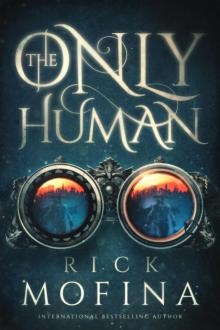 The Only Human
The Only Human Tom Reed Thriller Series
Tom Reed Thriller Series![[Tom Reed and Walt Sydowski 04.0] No Way Back Read online](http://i1.bookreadfree.com/05/tom_reed_and_walt_sydowski_04_0_no_way_back_preview.jpg) [Tom Reed and Walt Sydowski 04.0] No Way Back
[Tom Reed and Walt Sydowski 04.0] No Way Back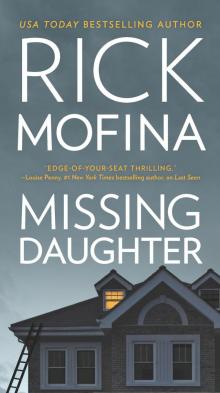 Missing Daughter
Missing Daughter Their Last Secret
Their Last Secret Jason Wade - 02 - Every Fear
Jason Wade - 02 - Every Fear In Desperation
In Desperation Every Second
Every Second Full Tilt
Full Tilt Search for Her
Search for Her The Last Pursuit
The Last Pursuit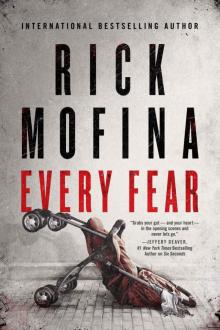 Every Fear
Every Fear Last Seen
Last Seen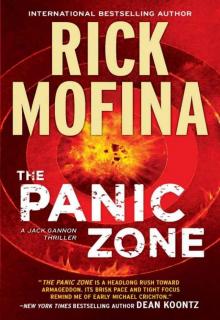 The Panic Zone
The Panic Zone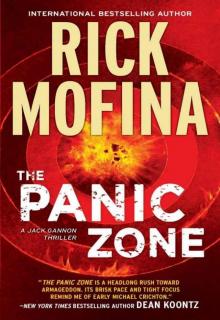 The Panic Zone jg-2
The Panic Zone jg-2 Free Fall
Free Fall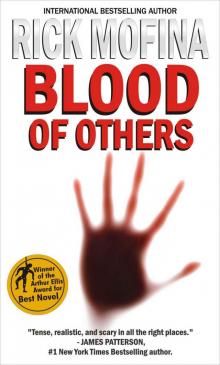 Blood of Others
Blood of Others![[Jason Wade 02.0] Every Fear Read online](http://i1.bookreadfree.com/i1/03/31/jason_wade_02_0_every_fear_preview.jpg) [Jason Wade 02.0] Every Fear
[Jason Wade 02.0] Every Fear Backup
Backup Perfect Grave
Perfect Grave Into the Dark
Into the Dark Whirlwind
Whirlwind Perfect Grave jw-3
Perfect Grave jw-3 If Angels Fall (tom reed and walt sydowski)
If Angels Fall (tom reed and walt sydowski) Six Seconds
Six Seconds If Angels Fall
If Angels Fall They Disappeared
They Disappeared Vengeance Road
Vengeance Road Before Sunrise
Before Sunrise A Lifetime Burning in a Moment
A Lifetime Burning in a Moment Blood Red Rings (Dangerous Women & Desperate Men)
Blood Red Rings (Dangerous Women & Desperate Men) As Long As We Both Shall Live (Dangerous Women & Desperate Men)
As Long As We Both Shall Live (Dangerous Women & Desperate Men)![[Tom Reed and Walt Sydowski 01.0] If Angels Fall Read online](http://i1.bookreadfree.com/i2/04/12/tom_reed_and_walt_sydowski_01_0_if_angels_fall_preview.jpg) [Tom Reed and Walt Sydowski 01.0] If Angels Fall
[Tom Reed and Walt Sydowski 01.0] If Angels Fall Cold Fear
Cold Fear Be Mine
Be Mine Three Bullets To Queensland
Three Bullets To Queensland